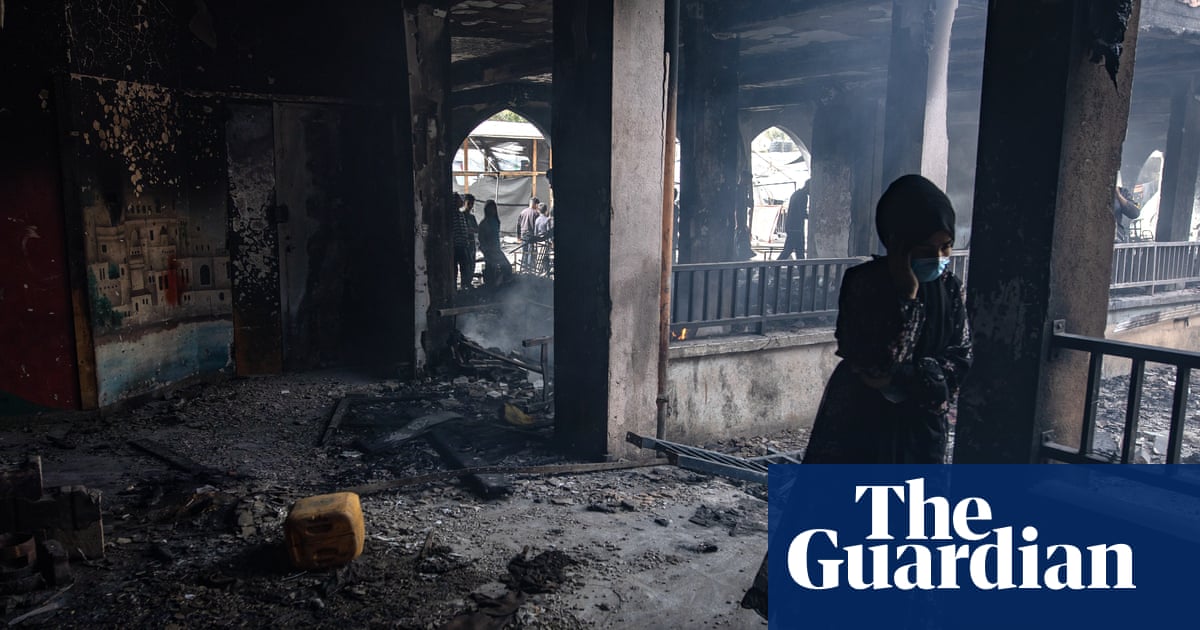Valdo Calocane, the triple murderer who went on a violent rampage in Nottingham, was not forced to take injectable antipsychotic medication because he did not like needles, a report on his care has found.
NHS England released the full version of an independent investigation into Calocane’s care after pressure from the victims’ families. It initially only committed to publishing a summary of the report, citing data protection reasons.
The review looked into the mental health care Calocane received before he killed the university students Grace O’Malley-Kumar and Barnaby Webber and the school caretaker Ian Coates on 13 June 2023.
He was sentenced to an indefinite hospital order after pleading guilty to manslaughter on the grounds of diminished responsibility as a result of paranoid schizophrenia and three counts of attempted murder.
The independent report, published on Wednesday, found that Calocane had refused to take depot medication – slow-release antipsychotic drugs administered via injection – each of the four times he was sectioned before the attacks.
He was known to refuse to take medication when at home, and depot injections are often used to increase medication adherence and consistency.
The report states: “The inpatient teams involved in Calocane’s care were trying to treat Calocane in the least restrictive way and took on board his reasons for not wanting to take depot medication, which included him not liking needles.”
The report also found that a risk assessment in February 2022 had urged staff not to visit Calocane at home and if required to do so, not to go alone.
The risk assessment notes state that Calocane had a “history of violence and aggression when detained … violence and aggression towards housemates … poor insight [and] does not agree that he has been unwell over the last 12 months”.
The report found that the assessment had looked at the risk to staff, but it did not consider how to manage the risk of Calocane not taking medication and the “potential acts of violence” that could follow.
It also found the “voice of Calocane’s family”, who frequently raised their concerns, was not heeded when evaluating risk during his treatment.
Calocane’s first psychotic episode was recorded in May 2020, when he broke into neighbouring flats and frightened a woman so badly that she jumped from a first-floor window and injured her back, requiring surgery.
He was discharged from mental health services in September 2022 after missing a number of appointments, and staff were unable to visit him at home as he had provided an incorrect address.
He had no other contact with medical staff before the killings.
NHS England said it had decided to publish the report “in full in line with the wishes of the families and given the level of detail already in the public domain”.
Dr Jessica Sokolov, the regional medical director at NHS England (Midlands), said: “It’s clear the system got it wrong, including the NHS, and the consequences of when this happens can be devastating.
“This is not acceptable, and I unreservedly apologise to the families of victims on behalf of the NHS and the organisations involved in delivering care to Valdo Calocane before this incident took place.”
Claire Murdoch, NHS England’s national mental health director, said: “It is clear there were failings in the care provided to Valdo Calocane, which is why the trust responsible was placed in our highest oversight and support programme which has seen them overhaul their risk assessment processes.
“Nationally, we have asked every mental health trust to review these findings and set out action plans for how they treat and engage with people who have a serious mental illness, including how they work with other agencies such as the police. And we’ve instructed trusts not to discharge people if they do not attend appointments.”
Marjorie Wallace, the chief executive of the mental health charity Sane, said: “This should act as a watershed moment revealing the truth and honouring the needs of the families of victims of homicides by people with mental illness or disorder.
“Today’s findings expose the same flaws and fault lines that have resulted in tragedies, yet little seems to have changed: basic failings of communication, inadequacies in assessing risk, and in over half the cases we analysed, not heeding the warnings of families or those close to the patient.
“As in this case, it is too often cited that it was the individual’s choice to ‘disengage with services’ as a reason for the lack of effective follow-up and care.”

.png) 2 months ago
23
2 months ago
23













































